Can you cut 1 Tonne of carbon pollution out of your life?
Take the challengeMichael Hewins is an organic market gardener with a background in permaculture, organic agriculture and horticulture and has a wide knowledge of how to grow high quality, healthy food.
He has been a full-time market gardener for the past 7 years, worked as the market gardener at Milkwood Farm + farm manager at Common2Us Community Farm, and has a great working knowledge of organic vegetable growing in both temperate and subtropical environments.
After completing Milkwood's Serious Backyard Veggies course with Michael as a teacher, I naturally had tonnes of questions, so I caught up with him for a chat:
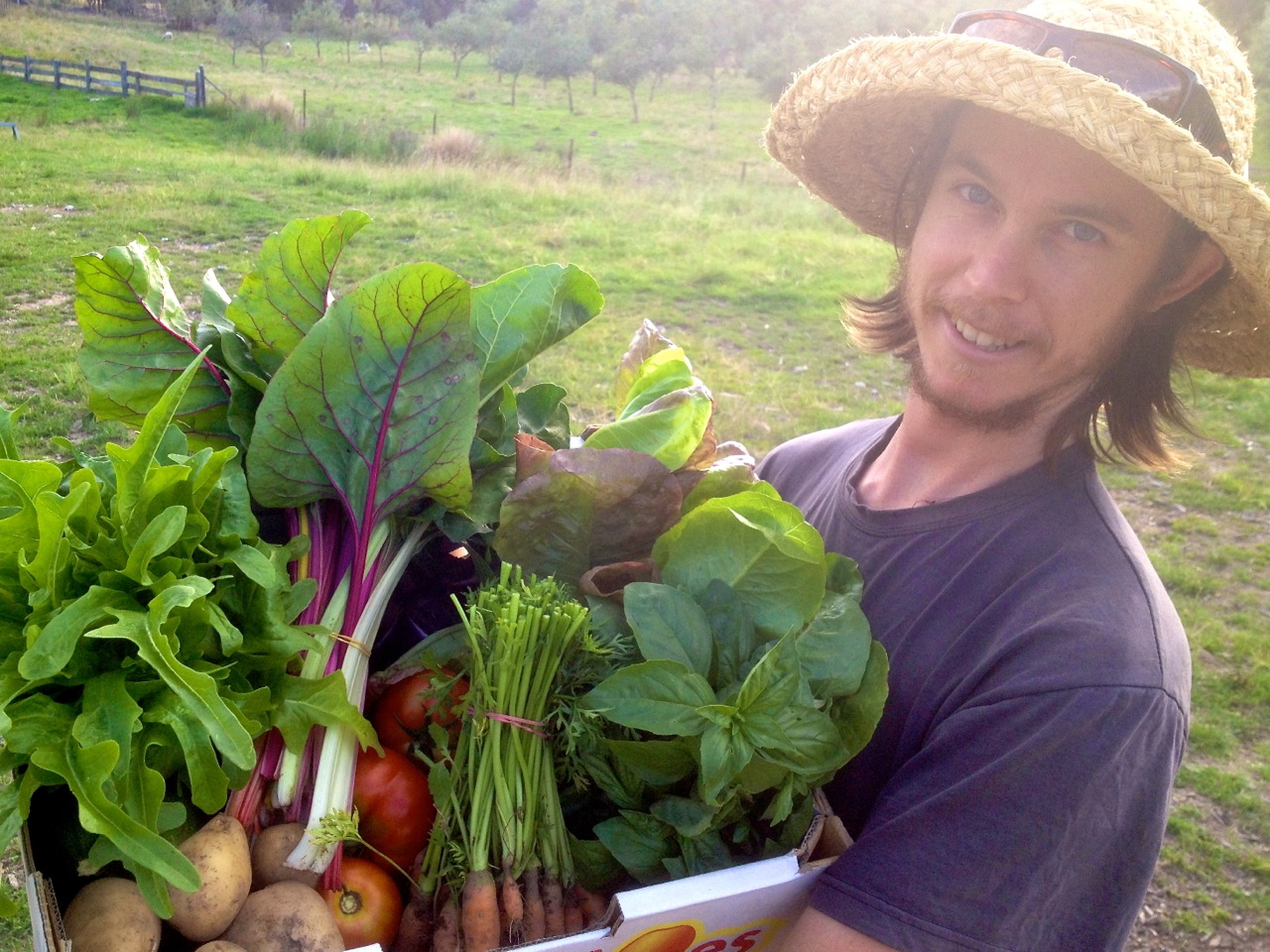
Tell us a bit about yourself, where you are from?
I grew up in the suburbs of the Gold Coast with a pretty standard suburban upbringing... 4 walls and a roof, a backyard, cricket in the street, jumping through sprinklers, lamb roast on Sunday. You know the story, it was a wonderful place to grow up.
How did you first get into market gardening, were there any key influences or driving factors?
The journey towards becoming a full-time market gardener started taking root when I got fed up with living a hamster-on-the-spinning-wheel suburban kind of lifestyle. I needed a change and decided to leave the Gold Coast looking for what that change might be.
I did a lot of volunteering on the East Coast over a two-year period, which saw me moving through a range of environments from commercial conventional and commercial organic farms to self-sufficient homesteads, intentional communities, unintentional communities, intensive market gardens, bush re-wilding huts way up in the mountains. Pretty much anywhere that seemed interesting and I felt I could learn and grow from.
In fact, that's how I got involved with Milkwood back in 2011 after a stint of wwoofing (worldwide opportunities working on organic farms) on their farm when it was operating out near Mudgee. One thing led to the next and soon enough, I was running the Milkwood market garden and teaching a few courses.
Through these different experiences, I saw how people and groups organised their lives and businesses, learnt from the land and a range of eclectic eccentric folk. Most of all I built a foundation of core ethics, principles and values that ring true for me and in turn, also work in accordance with building life rather than destroying it.
With a new way of looking at life, I took all that learning and blended it into something that made sense for me. What resonated the most throughout this period was the need to grow good food and share good food.
"I recognised that food is one element that binds us all together, there is nothing abstract about the taste of a vine ripened tomato, or the sweetness in an organic pumpkin."- -
I started looking at how I could make that my livelihood and followed the path to small-scale organic market gardening and living a land-based lifestyle.
Did you start out in organic growing, or drift into it?
The need to grow organically came from a realisation that I could not compromise my values to grow food that didn't support other life systems - those which are intrinsically connected to our food system and life in general.
I wanted to produce food that was good for whatever or whoever was connected to that land, rather than just giving attention to the human perspective. After a lot of learning about how natural systems and ecologies work through direct experience and study, growing organically was a logical decision for me. It became obvious that you don't need chemicals or highly refined synthetic substances to grow healthy nutritious food.
When you understand the principles of how the ecology you're interacting with works, you can use that information to make decisions that support how it functions. You can enhance and refine the systems that give you the return you need all without creating an imbalance.
"It is what some would refer to as holistic system-based thinking."- -
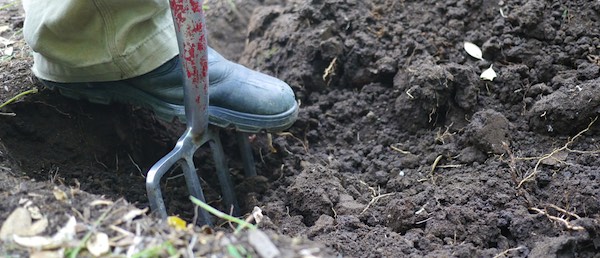
How do the principles of permaculture influence the way you cultivate food?
When you start interacting with the land and being open to receiving what it shows you, you realise all the principles that permaculture promotes are nothing new. Life and nature have been speaking these principles for a very long time.
I think permaculture offers a first step for those that are longing to reconnect with nature again, rebalance what is real in their lives and to design human systems with nature. I believe that is why so many people resonate with what permacultural thinking articulates.
"It's inspiring when you realise intellectually what it [permaculture] teaches... it's even more inspiring when you physically experience it."- -
When I first started learning about how natural systems work, the principles of permaculture were really handy for making sense of it all. Particularly pattern understanding has had a big influence on the way I design gardens and understand nature's systems. Tim Winton who founded the Permaforest Trust also played a large part in my learnings.
Nowadays, I find the principles of permaculture are just there in the background. I don't actively use them to design anymore as I have embodied the form of thinking they promote, it is just normality now.
Call it permaculture or not, I believe that understanding one's 'context' is really the key in growing good food and in life. My current context is an organic farmer. To be a profitable small-scale organic farmer means having to balance many things. Soil, finances, energy, relationships, the list can go on.
Permaculture for me is a great tool as a market gardener for making appropriate contextual decisions. It does not replace good horticultural training but definitely compliments it.
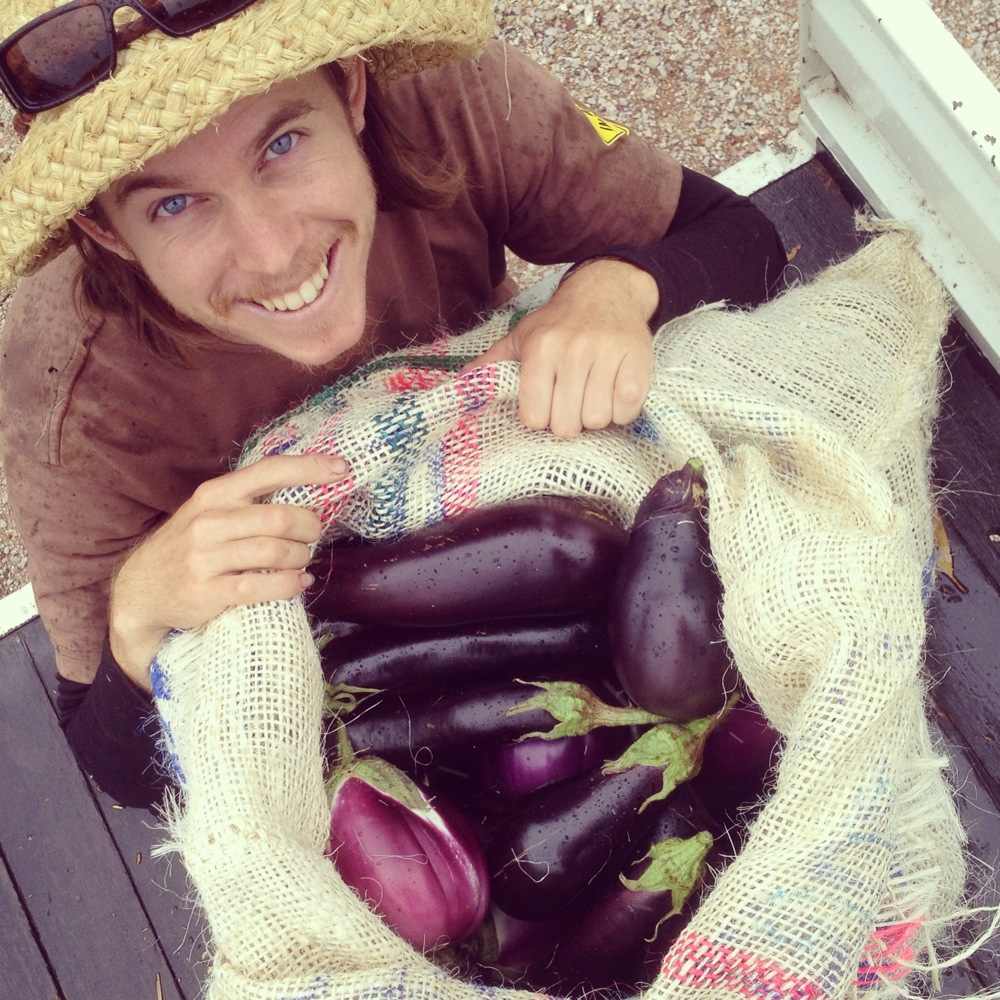
At 1 Million Women, we often talk about reducing waste. Processes such as nutrient cycling are not used enough in everyday life, but especially in the garden. Can you tell us a bit about how valuable the materials people generally see as waste are to making a closed loop in the garden?
To fully realise the need and value of creating nutrient management practices, you need to first understand exactly what the role and requirement of nutrients are for any given system. Especially in the garden, and specifically for the soil.
When you understand that soil is a living organism that requires 'soil food' to stay productive, and the nutrients within this 'soil food' are what feeds the organism which in turn feeds the plant, then we can appreciate the importance of building nutrient cycling strategies in our gardens and to grow food.
By adopting creative ways of managing and recycling nutrient - I call them 'mechanisms of fertility' (composting, cover cropping, bio-ferments, bio-remineralising, crop rotation) - the practice of taking nutrients in forms that are not immediately useful to us, and transforming them into forms that are most appropriate to feed the life in our soils will see our gardens grow and flourish, and become consistently productive.
"Nutrient cycling is a pattern in nature that portrays itself through every ecology. In the garden, we mimic that pattern and ramp it up so it's more productive for us. It is logical, as most good things are."- -
When you garden organically you realise very quickly the need for building effective nutrient management strategies.
Things can get interesting when you couple the basic principle of nutrient cycling with current technologies that allow you to assess your soils nutrient bank and then balancing those minerals. You can really get creative with making specific foods for your soil.
It has been scientifically proven that soil is a major carbon sink. I believe one of the most important practices we can be doing at the moment, collectively as animals that live on the land, is to focus on putting carbon back into our soils. We have the technology and understanding of how to do this.
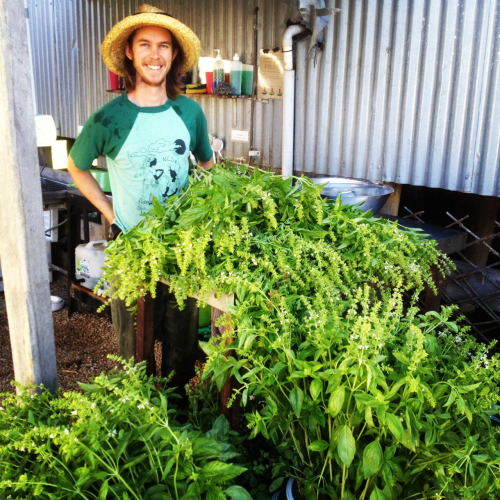
The course you teach on 'serious backyard veggies' paints the liberating side to growing your own food. Is this something you feel more people are waking up to?
Yes definitely. People want to have a connection to their food, to the land, to nature, and one of the best ways of doing that is by growing a garden.
Folk are also experiencing a general kickback from the perceptive and illusory perks of modern day living, you can see this with the movement of people now looking to simplify their lives and focus on what really matters. Also with current environmental issues many people are stepping up to do what they can to make a change for the better. Comfort and convenience and the modern hyper connected dream has been blown out of proportion, blinding and removing us from the other elements of life that are foundational needs for us as humans.
Many are waking up to the negative impact we create from living this way and are changing their lives to get back the substance and balance we all need and reconnecting with what means to be human and a part of nature.
Many people find this connection in a garden.
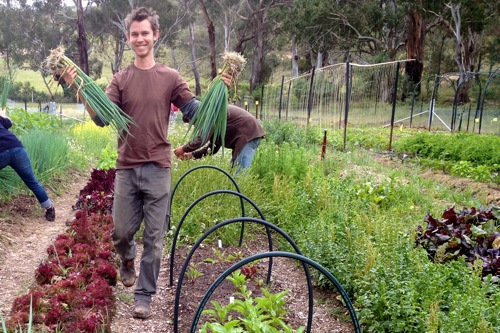
You've cooked a chicken in a hot compost style hångi, which is a pretty unique experience. What are some other memorable or unexpected experiences you've had as a gardener and farmer living a land-based lifestyle?
I remember having a conversation with a friend - who just turned 3 at the time - about the leaves of plants. We were sitting in the garden in the afternoon light just having a general chat, but the thread of conversation was one of those 'figuring it all out' kinda chats.
She pulled a leaf off a plant and asked me "what's on the inside of this leaf?" as she held it up to the light.
"Well... I said. It contains sap, kinda like our blood but blood for the plant" and she said "whats inside that sap?"
I could see where the conversation was about to go. "Water mostly" I answered, "but also nutrients and other chemicals that the plant uses to grow." It went on for a little bit longer until I reached the point of trying to explain what comes after atoms, and I didn't have the answer. I think this is what I love about gardening, the not knowing, the exploration, the interaction, the learning, the physical experience and the making sense of it all day by day.
The conversation shifted away from the details of the leaf and more to do with experiencing life... and then we went and ate cake. It was a successful afternoon.
"For me, the best times in the garden are those times... and what makes them even better is sharing them with others."- -
Finally, do you have any golden advice for people who are just starting out growing their own food?
For those just starting out, start from somewhere, anywhere, even if it's just a small pot. Give it a real go and accept feedback. Don't wait for someone to hold your hand, just give it a go and don't give up!
Set yourself goals, refine your observation skills, get hungry for knowledge, learn the principles, visit gardens, get involved with your community, turn off your t.v, chew slowly, spend time in wild nature, support and show appreciation to your local organic farmer. Share what you know passionately with those that are willing to listen and patiently with those that are not yet ready. Have fun!
[All images: Milkwood]
If you would like to find out more about Michael's backyard veggies course, visit Milkwood's courses page here.
READ THIS NEXT:
5 Permaculture Principles To Help You Start A Garden
What Is Integrated Pest Management & How Can It Help Your Garden?

